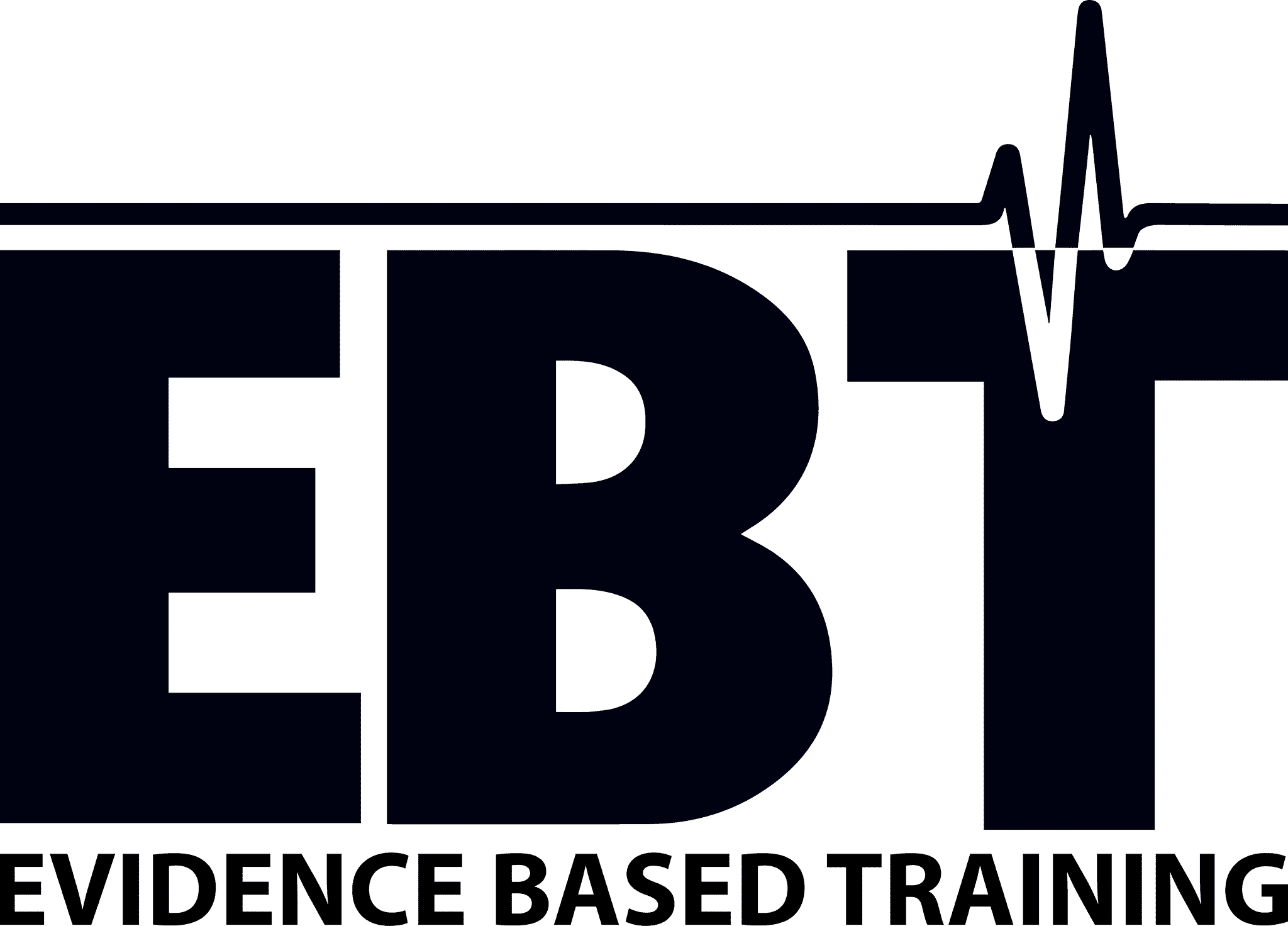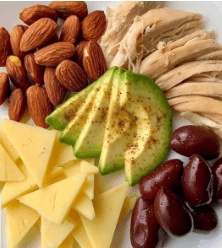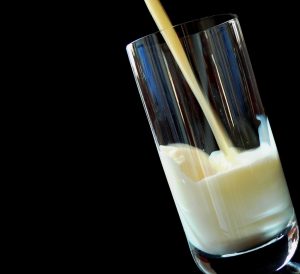Are you looking to burn fat using the keto diet? Make sure to read this article before you do! We reveal what ketosis really is, give you keto snack suggestions and cover risks of the keto diet.
TAKE HOME POINTS
- Keto diets (< 20 g carbs per day) makes you lose WATER weight first, but can also help fat loss if you eat in a caloric deficit.
- Keto diets help you stay full longer due to simplicity, high protein, and no liquid calories.
- “Ketosis” does NOT cause extra fat loss, but simply means your body isn’t getting any carbs and only using fat from your diet as energy. This does not mean you’ll lose more stored fat, and you can still gain weight in ketosis.
- Keto diets tend to be high in saturated fat and can thus increase heart disease risk.
You can get the benefits keto without the risks by following our Diet Like a Doctor fat loss system.
What keto diet looks like
The keto diet is an extreme type of low carb diet where a maximum of 20 grams of carbs per day is allowed. This means meals will generally not have any rice, potatoes, pasta, bread, added sugar, flour and may even restrict some fruits and vegetables. Most keto meals will be a protein meat or eggs together with a combination of vegetables and sauce. Here’s three examples:
How keto diet works
Like all diets keto works by making you eat less calories. Keto achieves this by eliminating carbs from the diet. This means that most calories from your diet will come from fat and some from protein. The high protein, simplicity and lack of liquid calories from soda means you’ll probably feel less hungry on a keto diet (5), making it easier to eat less calories.
To get energy from fat, your body breaks down the fat into molecules called ketones. The body is always producing some ketones, but will produce more of these when you are on a keto diet. These ketones can be detected in your blood and urine and if the levels are high enough the state is referred to as ketosis.
“Keto gurus” will claim that ketosis i a unique “fat burning” mode where easily burn fat, but this is a myth. There’s nothing magic about ketosis. There’s even “ketone supplements”, claiming to burn fat, but instead they trick the body into thinking it’s already burning fat and REDUCE fat burning (lipolysis). These supplements also contain calories, so if anything they make it harder to lose fat. (3)
While research on keto is limited, we know that a low carb diet will cause the same amount of fat loss as any other diet as long as calories and protein intake are equal (1). You will lose some extra WATER weight on keto though, but this is not fat loss (4). If you want to learn more about low carb diet, read our full article on the topic here.
Will keto work for everyone?
Keto will work as long as the diet reduces the calories you eat and as long as motivation is high enough so you can stick to the diet. As keto restricts you quite a bit, most people will find it hard to stick to long term. People investing a lot of time and effort into their diets, like elite athletes, are usually the ones who can stick to such a diet for longer periods of time (2).
Can keto be bad for you?
Yes. If your keto diet is high in animal protein and higher in saturated fat than unsaturated fat, long-term keto can increase your risk of heart disease (6). You can counteract this risk by getting most of your fats from unsaturated sources like fish, avocados, nuts, seeds olive oils and rapeseed oils, while getting most of your protein from dairy. This way you’ll be eating a “heart healthier” version of the keto diet.
We know that weight loss in overweight people reduces risk of heart disease, and we know that eating more saturated fat increases risk of heart disease. Whether the health benefit of weight loss is greater than the health risk of eating saturated fat is curretly unknown as there are no long-term studies on keto.
Finally, for those of you who want big muscles, the water weight lost on keto can make your muscles look smaller (4).
Are keto diets safe?
For healthy people, keto is safe short-term. But if you have type 2 diabetes and are taking a medication known as SGLT2 inhibitors (Jardiance, Synjardy), there are several case reports of keto diets inducing a life-threatening condition called “ketoacidosis”. This a state where your body has no access to insulin, making ketone levels so high that your blood becomes acidic. Keep in mind ketoacidosis is NOT the same thing as ketosis, and healthy people without diabetes on keto should not develop ketoacidosis.
What keto snacks can I have?
High fat high protein snacks include beef jerky, boiled eggs, mozzarella cheese sticks, mixed nuts, olives, and peanut butter, whey protein. Remember though, it’s the calories that decide if you lose fat or not, not the carbs. Thus, eating only mixed nuts and peanut butter might not be the best idea as opposed to going for eggs and whey protein.
What keto foods are high in protein?
Red meats, chicken, and fish give you the most band for your buck. Dairy foods are higher in carbs but are also be packed with protein; eggs, quark, greek yoghurt. Protein supplements like whey and cassein are also useful if you want to save som money.
How to succeed with keto without the risks
If you are looking to lose fat and you are tired of fad diets, our eBook Diet Like a Doctor helps you stay lean. Each chapter provides practical steps to make changes NOW. Unlike other diet books, Diet Like a Doctor is completely evidence based with over 250 scientific references. Click here to learn more.
1. Hall et al 2017. Obesity Energetics: Body Weight Regulation and the Effects of Diet Composition.
2. Tzur et al. Adhering to the Ketogenic Diet – Is it Easy or Hard? (Research Review). Scifit. 3. Roberts et al. Ketone Supplements – Research Review. Scifit.
4. Tzur et al. Keto Flush – How Body Water and Glycogen Affect Ketogenic Weight Loss. Scifit.
5. Tzur et al. How the Ketogenic Diet Affects Hunger (Research Review) Authors. Scifit.
6. Nordic Nutrition Reccomendations 2012.
7. Gajjar et al. Euglycemic Diabetic Ketoacidosis in the Setting of SGLT2 Inhibitor Use and Hypertriglyceridemia: A Case Report and Review of Literature. Cureus, 11(4), e4384. doi:10.7759/cureus.4384











